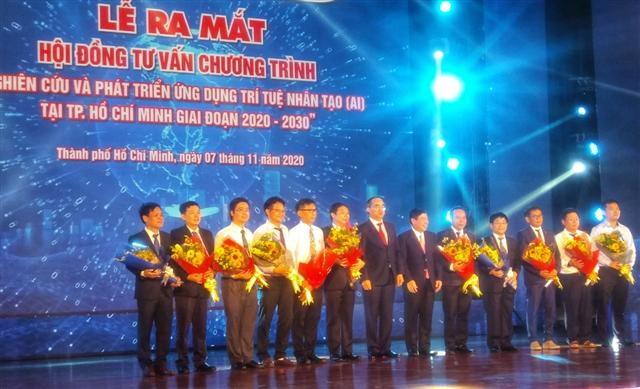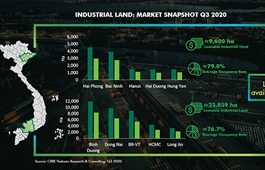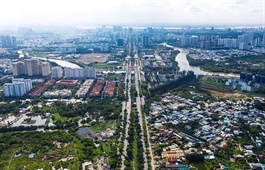AI bolsters Ho Chi Minh City's smart city approach
AI bolsters Ho Chi Minh City's smart city approach
AI is substantially contributing to the digital transformation of Ho Chi Minh City, enhancing the implementation of the city's smart city development project for 2017-2020, with a vision to 2025.

The members of the advisory council of Ho Chi Minh City's AI programme at the launching ceremony
|
Duong Anh Duc, Deputy Chairman of Ho Chi Minh City People's Committee, revealed that the city will issue the Research and Development of AI Applications in Ho Chi Minh City programme for the period of 2020-2030 in December 2020.
The programme plays an important role in Ho Chi Minh City's smart city development in the next five years and is expected to serve as the kernel for implementing the Fourth Industrial Revolution and the foundation for the successful implementation of the city's smart city project.
The programme aims to focus on building an AI foundation, researching and developing technologies using AI, developing human resources for AI through education, and enhancing academic communications with foreign AI professionals.
AI plays an important role in the city's smart city construction project during 2017-2020 with vision to 2025. Ho Chi Minh City has especially focused on building out digital government, digital economy, and digital infrastructure to create a foundation for the smart city.
In terms of digital government, the city has integrated many services and digitised data to serve citizens. Regarding the digital economy, Ho Chi Minh City has focused on 10 key sectors, including healthcare, education, transportation, finance-bank, tourism, agriculture, logistics, environment, energy, and human resources. Also, the city has been channelling investment into IT and telecommunications infrastructure, IoT infrastructure, data infrastructure, and e-identification platform, which are considered the premise for digital economic and digital government development.
Duc claimed that the application of AI and digital transformation are making important contributions to social and economic development in the city, especially in the context of the operation of the second stage of the smart city project.
However, Duc claimed that the application of AI and digital transformation has been slower and weaker than in other cities in the world. Among the 45,000 businesses operating in IT, merely 2 per cent have capital of over VND100 billion ($4.3 million), the rest includes micro- and small-sized enterprises. This is a big challenge in the application of AI and digital transformation.




























